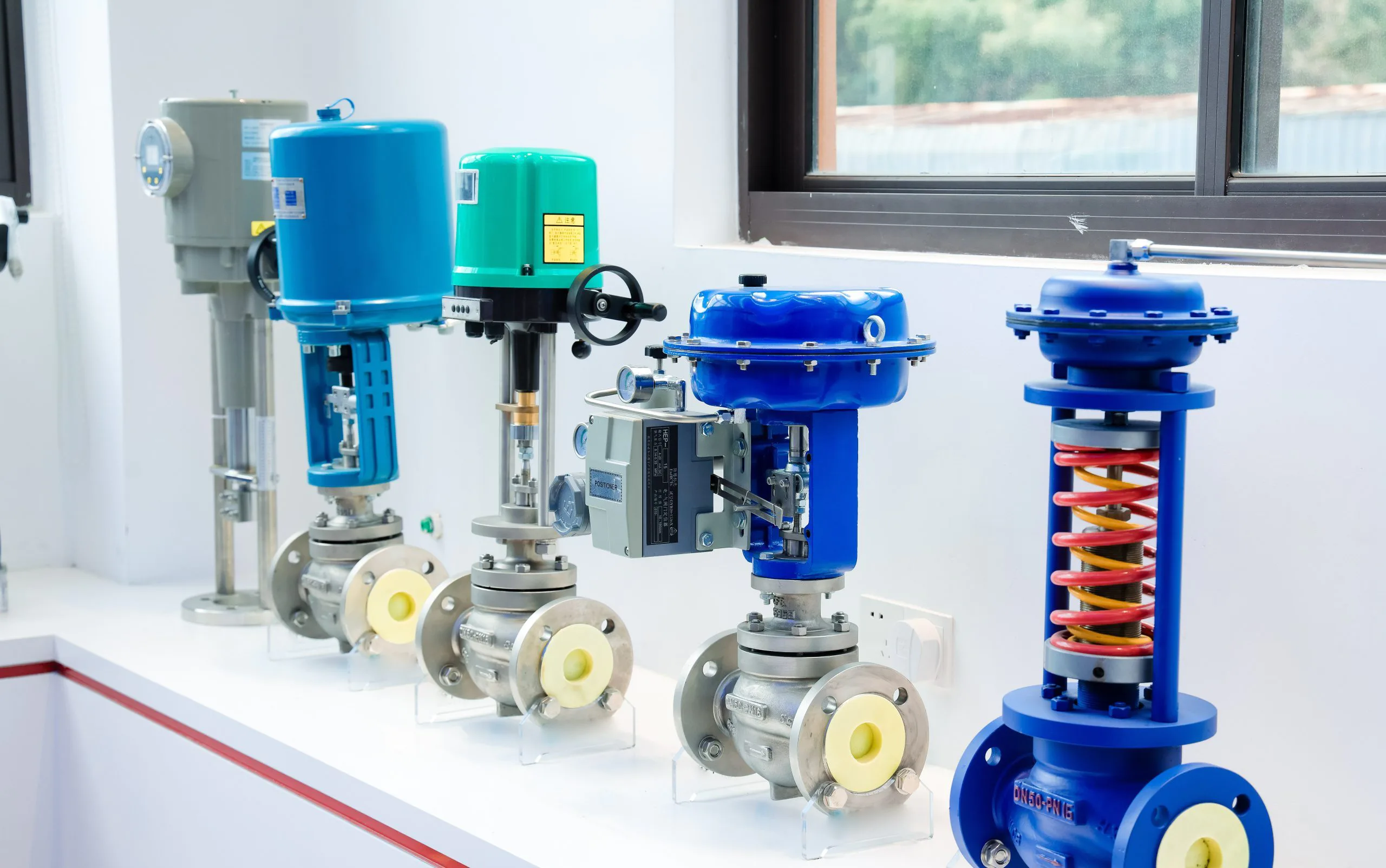Control Valves
Ensure optimized and environmentally responsible operations with control valves designed for general, severe, and critical applications
What Is Control Valve?
Control valves direct flowing gas, steam, water & chemical compounds to compensate for load disturbance and regulate process variables as close as possible to desired set points. Explore our control valve portfolio for designs tested for maximum efficiency and compliance with industry standards.
The Ultimate Guide: Everything You Need to Know About Control Valve Applications
Dive into this comprehensive guide to understand everything about control valve applications, their functions, types, industries, and more.

Introduction
Control valves play a crucial role in regulating the flow, pressure, and temperature of liquids and gases in various industries. With a wide range of applications, control valves are an essential component in many industrial processes. This article aims to cover everything you need to know about control valve applications, helping you understand their function, types, industries they serve, and much more. Whether you are a student, engineer, or a curious individual, this guide provides the knowledge you need to appreciate the significance of control valves in our modern world.


Functions and Types of Control Valves
The Role of Control Valves in Industrial Processes

Control valves serve several critical functions in industrial processes, including:
- Regulating flow: Adjusting the flow of fluids to maintain a steady rate or maintain specific conditions in a system.
- Pressure control: Managing the pressure within a system to prevent damage or maintain optimal operating conditions.
- Temperature control: Adjusting the flow of fluids to regulate the temperature within a system or process.
Common Types of Control Valves
Understanding the different types of control valves is essential to their applications. Some popular control valve types include:
Control valves serve several critical functions in industrial processes, including:
1.Globe valves: Ideal for precise flow control, these valves use a movable disk-type element and stationary ring seat for regulating flow.
2.Butterfly valves: These valves feature a rotating disk within a pipe to control the flow of fluids, offering a compact design and lower costs.
3.Ball valves: Known for their durability and high flow capacity, ball valves use a spherical closure element that rotates to control fluid flow.
Industries and Applications of Control Valves
Control valves serve several critical functions in industrial processes, including:
- Oil and gas: Controlling flow rates, pressure, and temperature in pipelines, refining processes, and chemical injection systems.
- Chemical processing: Regulating the flow of corrosive, abrasive, or high-temperature fluids in chemical reactions and processes.
- Water and wastewater treatment: Managing flow and pressure in pumping stations, distribution networks, and treatment processes.
Specific Control Valve Applications


While control valves serve multiple industries, some unique applications include:
Maintaining Control Valves for Optimal Performance
Proper maintenance of control valves is crucial for ensuring their longevity and efficient operation. Here are some maintenance tips:
- Regular inspections: Periodically inspect control valves for signs of wear, corrosion, or damage. This will help you identify potential issues before they become critical.
- Lubrication: Keep moving parts lubricated to reduce friction and prevent wear.
- Cleaning: Remove dirt, debris, and other contaminants to ensure smooth valve operation and minimize the risk of blockages.
- Seal replacement: Replace worn or damaged seals to prevent leaks and maintain optimal performance.
- Calibration: Regularly calibrate control valves to ensure accurate and consistent operation.
- Documentation: Keep detailed records of maintenance activities, including dates, procedures, and any issues encountered. This will help you track the valve’s performance and plan for future maintenance.
Learn More Information About Control Valves
Contact Us
TelePhone
+86 13556646018
Location
Longchang Micro-Chuangyuan, Dongcheng District Dongguan City, China, 523000

